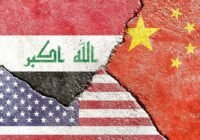The Tianjin explosion may hurt the city’s economy, but it will hurt its corrupt officials more.
The massive explosion that tore through the port of Tianjin on August 12 has had a profound effect on the city. As well as the terrible loss of life and the unknown environmental effects to come, its economic impact on the city and wider region will be significant. But it will have a more lasting political effect, as the Chinese government must seek to reassure people that their welfare is prioritized above economic growth.
Tianjin is famous for being the city with the highest gross domestic product (GDP) per person in China. Along with Beijing, Shanghai and Chongqing, Tianjin does not form part of a province. Instead, it is controlled by the central government in Beijing and given equal status to a province.
The city rose to such political and economic importance as it is one of China’s most important industrial centers, with its port being a crucial point in the commodity supply chain. It is a key oil and gas terminal with large commercial and strategic oil storage facilities as well as a floating unit for liquefied natural gas imports. And it is also a major entry point for iron ore, which fuels much of China’s vast steel-making industry (constituting nearly half the world’s total), along with a host of other commodities.
Government investment has served to make Tianjin a northern economic hub, close to Beijing, to balance out the Guangdong Pearl River Delta and Shanghai in the south. Having been designated a “special economic zone” in 2005, the city has also developed a significant high tech industry and become a hub for numerous Fortune 500 companies.
The economic impact of the explosion will, therefore, be significant in terms of disrupting supply chains and knocking confidence in the city’s safety.
A challenge to “Made in China”
The explosion in Tianjin is a reminder that China’s huge growth over the past three decades has not been without casualty. While millions have been lifted out of poverty, there have been numerous arguments in China about GDP being considered more important that people’s welfare in the pursuit of economic growth.
These will be bolstered by the fact that the explosions were caused by a company storing hundreds of tons of sodium cyanide, far more than legally allowed, within 500 meters of homes. Though the city had laws stating a minimum distance of 1 kilometer, there is the impression that the local government supports—or at least turned a blind eye—to companies, irrespective of the danger they may bring to the community, in pursuit of profit.
Chinese President Xi Jinping has urged authorities to learn “extremely profound” lessons “paid for with blood” from the accident. The fact that regulations were already being flouted should mean a crackdown on corners being cut.
The president’s comments indicate that this disaster will lead to greater change than previous ones. Unlike with previous incidents, the information about the explosion has been relatively transparent and public criticism has been allowed. Chinese Premier Li Keqiang has even encouraged it.
It is, therefore, likely that there will be a significant increase in costs across numerous industries—not just chemicals storage. We can expect to see more complicated inspection procedures being applied to prevent future catastrophes from taking place.
It’s a warning to the low cost and low quality industries in particular, where inspection costs will significantly increase. It may accelerate the process of China losing more of its manufacturing cost advantages to India or Vietnam as a result. But this could serve to strengthen China’s plan to change into an innovation oriented nation, focused on developing the upper stream of the global value chain.
A crackdown on companies playing fast and loose with safety would also fit into the government’s broader anti-corruption drive, which has been taking place over the past couple of years. To restore public confidence in the government and warn other local government ministers that they cannot get away with lax safety procedures, it is likely we will see resignations or demotions.
The Chinese government may even use the incident to root out corruption in Tianjin in a wider sense. Xi Jinping has spoken of “fighting a war” at all levels against those dealing irresponsibly in dangerous chemicals. Thus, the Rui Hai International Logistics company that owned the warehouse where the blast originated is under investigation. And others in Tianjin, where many have been attracted by the chance to make money, should be worried too about corners they may have cut—as investigations are likely to begin.
*[This article was originally published by The Conversation.] ![]()
The views expressed in this article are the author’s own and do not necessarily reflect Fair Observer’s editorial policy.
Photo Credit: Karl-Ludwig Poggemann / Flickr
 We bring you perspectives from around the world. Help us to inform and educate. Your donation is tax-deductible. Join over 400 people to become a donor or you could choose to be a sponsor.
We bring you perspectives from around the world. Help us to inform and educate. Your donation is tax-deductible. Join over 400 people to become a donor or you could choose to be a sponsor.
Support Fair Observer
We rely on your support for our independence, diversity and quality.
For more than 10 years, Fair Observer has been free, fair and independent. No billionaire owns us, no advertisers control us. We are a reader-supported nonprofit. Unlike many other publications, we keep our content free for readers regardless of where they live or whether they can afford to pay. We have no paywalls and no ads.
In the post-truth era of fake news, echo chambers and filter bubbles, we publish a plurality of perspectives from around the world. Anyone can publish with us, but everyone goes through a rigorous editorial process. So, you get fact-checked, well-reasoned content instead of noise.
We publish 3,000+ voices from 90+ countries. We also conduct education and training programs
on subjects ranging from digital media and journalism to writing and critical thinking. This
doesn’t come cheap. Servers, editors, trainers and web developers cost
money.
Please consider supporting us on a regular basis as a recurring donor or a
sustaining member.
Will you support FO’s journalism?
We rely on your support for our independence, diversity and quality.








Comment